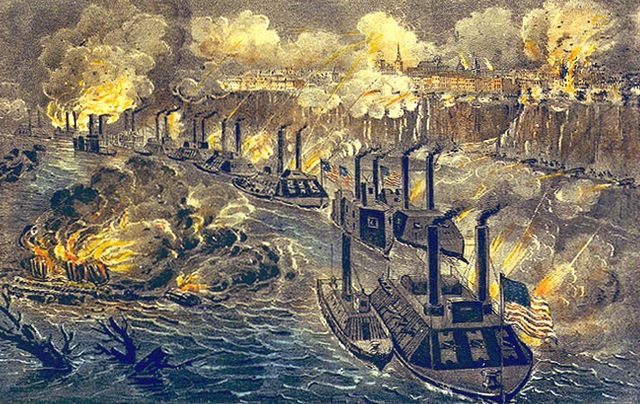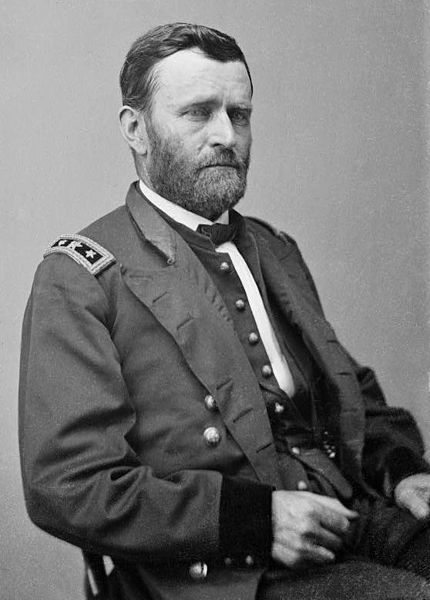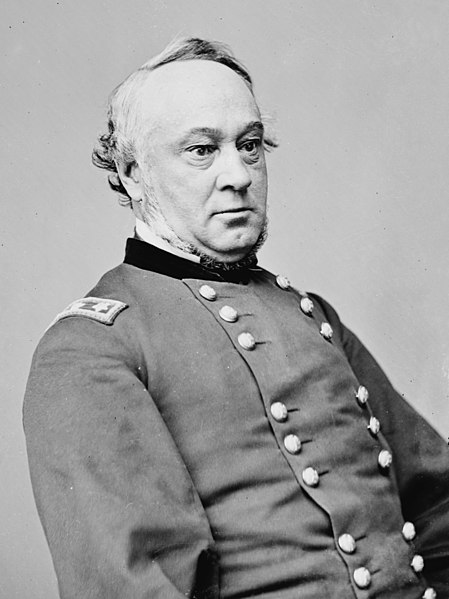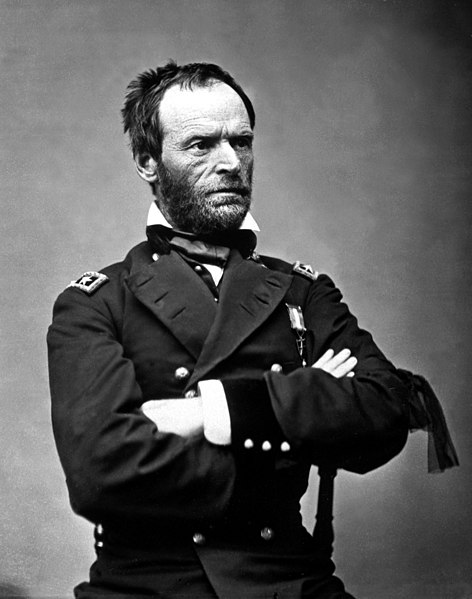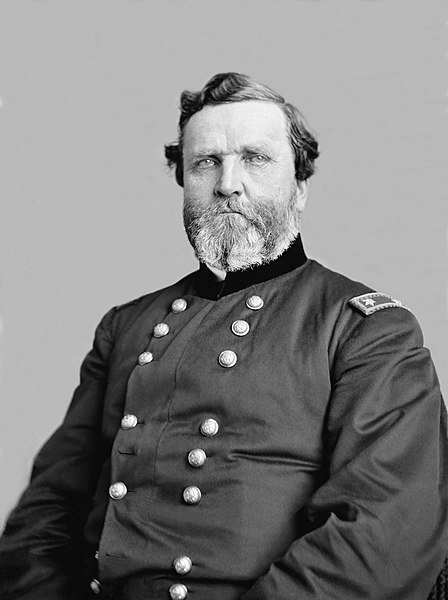The Vicksburg campaign was a series of maneuvers and battles in the Western Theater of the American Civil War directed against Vicksburg, Mississippi, a fortress city that dominated the last Confederate-controlled section of the Mississippi River. The Union Army of the Tennessee under Major General Ulysses S. Grant gained control of the river by capturing this stronghold and defeating Lieutenant General John C. Pemberton's forces stationed there.
Lithograph of the Mississippi River Squadron running the Confederate blockade at Vicksburg on April 16, 1863
Maj. Gen. Ulysses S. Grant, USA
Lt. Gen. John C. Pemberton, CSA
View of Vicksburg vicinity and fortifications, 1863
Western theater of the American Civil War
The western theater of the American Civil War encompassed major military operations in the states of Alabama, Georgia, Florida, Mississippi, North Carolina, Kentucky, South Carolina and Tennessee, as well as Louisiana east of the Mississippi River. Operations on the coasts of these states, except for Mobile Bay, are considered part of the Lower Seaboard Theater. Most other operations east of the Appalachian Mountains are part of the eastern theater. Operations west of the Mississippi River took place in the trans-Mississippi theater.
Lt. Gen. Ulysses S. Grant, USA
Maj. Gen. Henry W. Halleck, USA
Maj. Gen. William T. Sherman, USA
Maj. Gen. George H. Thomas, USA

